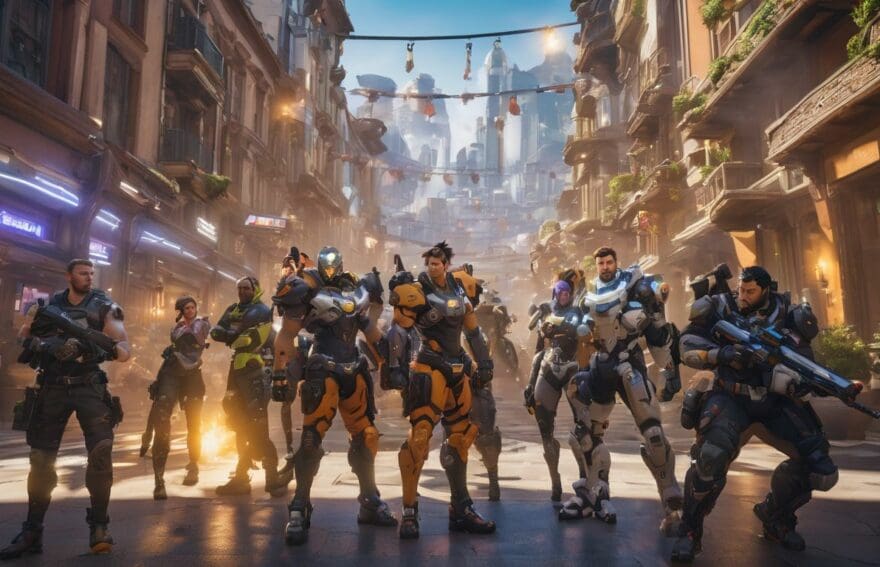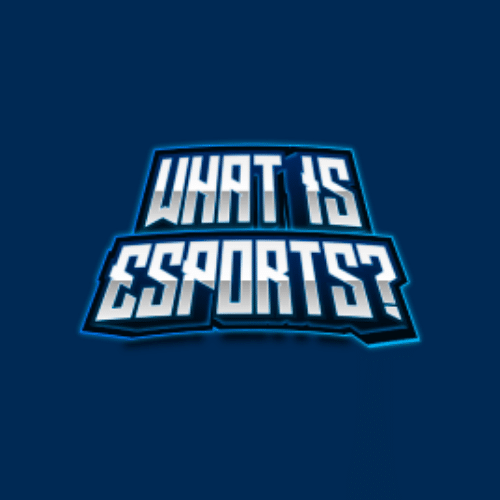Overwatch Competitive Guide: Mastering Team Play and Hero Strategies

Updated On: November 12, 2025 by 
Finding it a tad difficult to scale the heights in Overwatch Competitive, are we? You’re certainly in good company; many of us have been through that very same grind and come out on top.
Our guide is brimming with wisdom harvested from an abundance of matches, offering up team strategies and insightful hero advice that can truly revolutionise your gameplay. So why not give it a whirl and see how you fare on the path to triumph?.
Preparing for Competitive Play
Before jumping into competitive play, it’s important to prepare yourself for the challenges ahead. This involves avoiding one-tricking, being open to constructive criticism, analysing your gameplay through replays, and staying informed with hero guides.
These steps will help you become a well-rounded player ready for the competitive environment.
Don’t one-trick
We all know the thrill of mastering a single hero in Overwatch, playing them to perfection and climbing the ranks. But we must resist becoming one-trick players who can only shine with that one character.
If your team needs versatility or if your favourite hero is already taken, being able to switch gears is crucial for victory. We need to be ready to fill various roles and adopt different strategies on the fly.
Ensuring we’re proficient with multiple heroes across different classes deepens our understanding of game mechanics and team dynamics. This flexibility not only makes us more valuable teammates but also opens up a broader range of tactical possibilities during competitive play.
Now, transitioning smoothly from discussing hero flexibility, let’s talk about how accepting constructive criticism plays into becoming better at competitive gaming.
Accept constructive criticism
When honing your skills for competitive play, it’s crucial to accept constructive criticism from teammates and coaches. Embracing feedback helps identify areas of improvement, allowing you to enhance your gameplay and grow as a player.
Constructive criticism provides valuable insights into decision-making, hero selection, and team coordination, fostering continuous skill development.
Being open to constructive criticism is essential in the journey towards mastering Overwatch’s competitive mode. It enables players to adapt their strategies, refine their abilities, and make better decisions during intense multiplayer matches.
Watch your replays
- Analyse your gameplay: Watch your replays to identify mistakes, missed opportunities, and areas for improvement.
- Positioning assessment: Study your movements during the match to understand if you were in the right position at crucial moments.
- Decision-making review: Evaluate the decisions made during intense situations and assess their impact on the game’s outcome.
- Hero ability optimisation: Focus on how effectively you used your hero’s abilities and ultimates throughout the game.
- Learn from opponents: Review enemy player strategies and tactics to gain insights into different playstyles and counter-strategies.
- Meticulous note-taking: Keep track of recurring errors or weaknesses observed in multiple replays to prioritise improvement areas.
Browse hero guides
To improve hero knowledge and gameplay, passionate and novice Overwatch gamers can benefit from browsing hero guides. Understanding each hero’s unique abilities and playstyle is crucial for success in competitive play. Here are some essential tips for utilising hero guides effectively:
- Study the strengths and weaknesses of each hero to make informed team composition decisions.
- Learn about optimal positioning, strategy, and ultimate usage for every hero to maximise impact in matches.
- Explore advanced gameplay tactics specific to individual heroes to enhance your overall skill set.
- Gain insights into countering enemy heroes by understanding their abilities and play patterns.
- Familiarise yourself with the latest updates and changes to heroes’ abilities by staying updated on patch notes.
Communication and Teamwork
Utilising in-game communications is crucial for effective teamwork, as well as understanding the importance of positioning and building a strong team composition. To understand more about how these factors contribute to your success in Overwatch competitive play, read on!
Making use of comms
Communication is crucial in Overwatch Competitive play. We utilise comms to coordinate strategies, call out enemy positions, and provide updates on ultimate abilities. Clear and effective communication helps us work as a team, allowing us to adapt our tactics and make split-second decisions based on real-time information.
Utilising comms also fosters a sense of unity among team members, enhancing our overall gameplay experience.
When we make use of comms, we create an environment where everyone’s input is valued and considered. This collaborative approach strengthens our teamwork, leading to improved coordination during intense moments in the game.
Playing in groups
Playing in groups is crucial for success in Overwatch Competitive mode. Teamwork is essential, and coordinating with fellow players can significantly impact the outcome of a match.
Understanding each team member’s strengths and weaknesses allows for better synergy and coordination during gameplay. Moreover, playing in groups enables effective communication, allowing teammates to strategise, call out enemy positions, and focus fire on key targets.
By working together as a team, players can improve their chances of securing victory and ranking up within the competitive gaming community.
Understanding positioning is also important when playing in groups. Each hero excels at different roles within a team composition, so it’s vital to understand how to best utilise them alongside other teammates.
Understanding positioning
When playing Overwatch competitively, understanding positioning is crucial for success. Knowing where to position yourself on the map can make a significant impact on your team’s performance and overall game outcome.
Being aware of high ground advantages, choke points, and objective locations helps in making strategic decisions and gaining an upper hand over the opposing team.
Effective positioning also involves staying close to cover while maintaining sightlines to support your teammates. A good understanding of when to engage or disengage during fights is essential for survivability and securing team objectives.
Building a good team composition
- Ensuring that the team has a balanced mix of damage dealers, tanks, and supports is vital for covering all bases and increasing overall effectiveness.
- Understanding each hero’s strengths and weaknesses allows for better synergy within the team, maximising the potential for successful strategies.
- Communication is key: clear and effective communication among team members ensures coordinated efforts and timely responses to enemy tactics.
- Adapting to the opponent’s team composition by making quick hero switches can give your team an edge in countering their strategy.
Strategies for Success
In this section, we will delve into the importance of Overwatch stats and how to make sensitivity and reticle adjustments to improve your gameplay. We’ll also provide tips for dealing with high and low ranked players in competitive mode.
Importance of Overwatch stats
Understanding and analyzing Overwatch stats is crucial for improving performance in competitive play. By carefully examining statistics such as win rates, damage per second, kills, deaths, and ultimate usage, players can gain valuable insights into their strengths and weaknesses.
This information enables gamers to make strategic adjustments to their gameplay, refine hero selection based on performance data, and identify areas for improvement. Moreover, a thorough understanding of Overwatch stats facilitates effective communication within the team by providing concrete evidence to support gameplay decisions.
Careful attention to Overwatch stats not only enhances individual performance but also contributes to overall team success. Tracking critical metrics helps in identifying trends over time which aids in making informed decisions regarding hero strategies and adapting to opponents’ playstyles.
Making sensitivity and reticle adjustments
To optimise your gameplay, adjust the sensitivity and reticle settings to suit your playstyle and improve accuracy. Here are some key adjustments to consider:
- Tailor your sensitivity settings for each hero to achieve better control and precision.
- Experiment with different reticle styles to find the one that works best for you.
- Calibrate your mouse or controller sensitivity to ensure smooth and accurate aiming.
- Fine – tune your aim assist settings for consistent targeting in different situations.
- Consider using a lower sensitivity for hitscan heroes and a higher sensitivity for projectile heroes.
Tips for dealing with high and low ranked players
Dealing with high and low ranked players is an essential skill in Overwatch Competitive play. Pay attention to the following tips:
- Adjust your playstyle: Adapt to the different skill levels by being flexible with your strategies and hero picks.
- Communication is key: Use effective communication to coordinate with high-ranked players and guide low-ranked teammates.
- Stay positive: Encourage teamwork and maintain a positive attitude, regardless of the rank differences among players.
- Analyse opponents: Observe the tendencies of high-ranked players and exploit the weaknesses of low-ranked opponents.
- Lead by example: Demonstrate good sportsmanship, leadership, and adaptability to inspire others to perform better.
Utilising Resources
Subscribe to newsletters, stay updated on trending strategies and hero changes, and take advantage of beginner and advanced guides to improve your competitive gameplay. Keep learning and stay ahead in the game! Read more for expert tips on mastering Overwatch competitive play.
Subscribe to newsletters
Stay ahead of the game by subscribing to newsletters that keep you updated on the latest strategies, hero changes, and trending gameplay tactics. These valuable resources can provide crucial insights into improving your competitive play in Overwatch 2.
By staying informed about new hero abilities, updates to the ranking system, and emerging team composition strategies, you’ll be better equipped to adapt and succeed in the dynamic world of competitive gaming.
Receive exclusive tips for ranking up in competitive mode, understanding hero abilities, and mastering decision-making within multiplayer gameplay by subscribing to reputable newsletters.
Stay updated on trending strategies and hero changes
To stay ahead in Overwatch Competitive play, it’s crucial to keep up with the latest strategies and hero changes. By staying informed about popular tactics and character adjustments, you can adapt your gameplay and stay competitive in the ever-evolving gaming environment.
Embracing these updates ensures that you are equipped to face new challenges and make informed decisions during matches.
By actively seeking out information on trending strategies and hero changes, players can remain agile in their approach to the game, effectively responding to shifts in the meta and gaining a strategic edge over opponents.
Take advantage of beginner and advanced guides
To improve your Overwatch Competitive skills, taking advantage of beginner and advanced guides is crucial. Here’s how you can benefit from these resources:
- Access comprehensive hero – specific guides to understand the mechanics and strategies for each character.
- Utilise beginner guides that cover basic gameplay mechanics and strategies, helping you build a strong foundation for competitive play.
- Explore advanced guides that delve into intricate tactics, decision-making processes, and team synergies to elevate your gameplay.
- Seek out video tutorials and walkthroughs tailored to different skill levels, offering visual demonstrations of effective strategies.
Conclusion
Improving in Overwatch Competitive play requires dedication, practice, and a willingness to learn. Mastering hero strategies and teamwork is essential for achieving success. By implementing the tips and strategies outlined in this guide, players can elevate their gameplay and climb the ranks in Overwatch Competitive mode.
FAQs
1. What’s key to winning in Overwatch competitive play?
Mastering team tactics and making smart decisions during gameplay are crucial for success in Overwatch’s competitive arena.
2. How can I improve my aiming skills in the game?
Regular practice combined with following a beginner’s guide to competitive play can help you improve your aiming skills significantly.
3. Does hero selection impact team strategy?
Absolutely, choosing the right heroes and understanding their strategies is essential for teamwork and achieving victory in competitive gaming.
4. Where can I find tips on decisionmaking and strategies for playing competitively?
You can join an online gaming community or look up an Overwatch Competitive Guide that covers mastering both team play and individual hero strategies.


